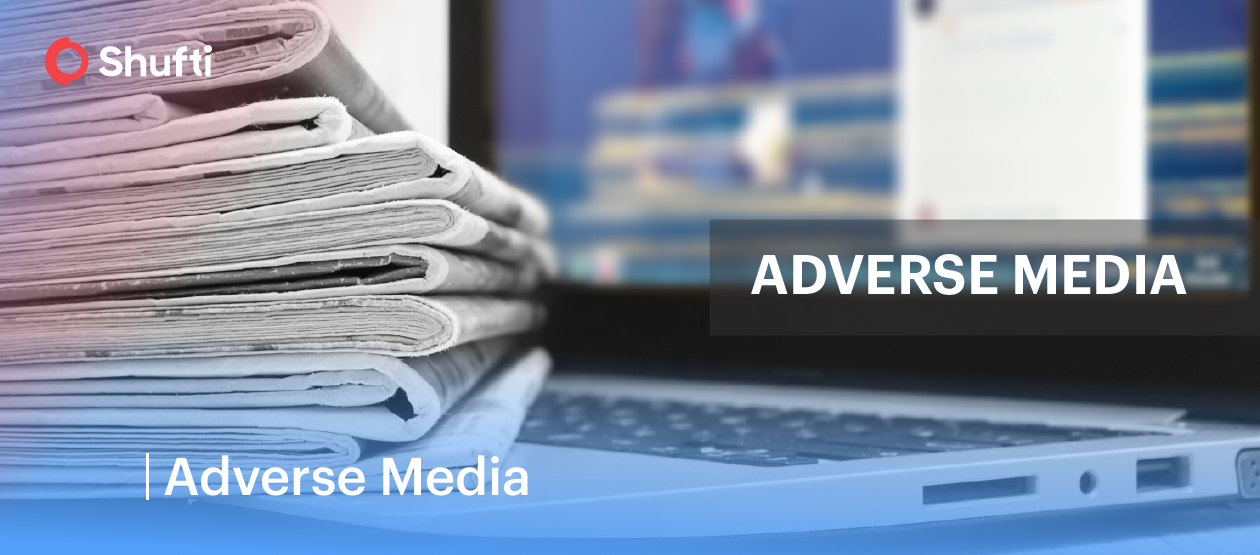Adverse Media

Verifying the integrity of customers and partners has become a non-negotiable requirement for businesses operating in and around the financial sector. As regulatory pressures increase and financial crime becomes more sophisticated, companies are increasingly expected to go beyond basic identity verification. This is where adverse media plays an important role.
Adverse media, sometimes referred to as negative news, includes publicly available information that links individuals or entities to activities such as fraud, corruption, terrorism financing, or other criminal conduct. Integrating this information into risk assessments allows organizations to spot potential threats early and make more informed decisions.
What Is Adverse Media?
Adverse media, broadly, refers to any form of negative information about a person or organization that appears in traditional news sources, regulatory announcements, legal records, or public reports. This information can expose direct or indirect involvement in criminal activity long before formal investigations or sanctions are applied.
Adverse media also extends to content from digital platforms, social media, legal databases, and government disclosures, For financial institutions, this information is frequently used to flag high-risk profiles and meet global compliance standards.
Common Types of Adverse Media
Adverse media can take many forms. The most commonly flagged categories include:
Digital Fraud
Fraud involving digital channels continues to grow, often leaving a trail in public reporting. This includes phishing attacks, online shopping scams, identity theft, account takeovers, fake chargebacks, and the distribution of malware or spyware.
Organized Crime
Links to organized crime may involve cross-border smuggling, human trafficking, illegal arms trading, extortion, or coordinated tax evasion schemes. These operations often surface in investigative journalism or criminal case reports.
Politically Exposed Persons (PEPs)
Those who hold public office or perform high-level political functions may appear in adverse media due to their elevated risk profile. While being a PEP is not inherently negative, associations with financial misconduct, bribery, or abuse of power often lead to their inclusion in enhanced due diligence processes.
Financial Crime and Terrorism
Criminal activities such as insider trading, use of money mules, financing of terrorist groups, and corruption are regularly reported through global media. Monitoring for these risks helps institutions avoid working with clients that are engaged in illicit behavior.
Where Adverse Media Comes From
Adverse media content is drawn from a wide array of public and regulatory sources. Reliable coverage of high-risk behavior can be found in the following areas:
Traditional and Online Media
Newspapers, magazines, television broadcasts, blogs, forums, and social media platforms are all common sources. Investigative reporting, in particular, often uncovers early signs of misconduct before legal action is taken.
Regulatory Sanctions and Watchlists
Government bodies maintain a number of official lists that aid in identifying high-risk individuals. These include:
- Specially Designated Nationals and Blocked Persons List (SDN) from the U.S. Office of Foreign Asset Control (OFAC)
- Specially Designated Global Terrorist (SDGT) list from the U.S. Treasury
- Sanctions lists from the Office of Financial Sanctions Implementation (OFSI) in the UK
- United Nations Security Council sanctions lists
- Consolidated EU list of sanctioned individuals and entities
These watchlists are constantly updated and integrated into compliance software to support real-time screening.
Government and Regulatory Disclosures
Adverse media also includes official statements, press releases, and enforcement actions from financial regulators and law enforcement. Public court records and legal databases are used to flag individuals with a record of criminal proceedings or civil penalties.
One example is the International Database (IDB) maintained by the U.S. Census Bureau, which provides demographic data used in broader customer risk profiling.
Why Adverse Media Checks Matter
Integrating adverse media into customer onboarding and monitoring processes gives businesses a stronger foundation for risk management. These checks help identify warning signs that would otherwise be missed through standard KYC or watchlist screening alone.
Real-time monitoring of adverse media also supports better decision-making when filing Suspicious Activity Reports (SARs). The ability to reference credible public sources can significantly improve the quality and credibility of a report, allowing compliance teams to act more decisively.
Meeting Global Compliance Requirements
Financial regulators in every region are placing increased emphasis on adverse media screening. Within the European Union, for example, the Fourth Anti-Money Laundering Directive (AMLD), along with its successors, outlines the importance of ongoing due diligence and the consideration of reputational risk indicators.
The EU’s risk factor guidelines encourage the inclusion of media-based insights when assessing customer risk profiles. Globally, the Financial Action Task Force (FATF) promotes a similar approach through its 40 recommendations, which form the backbone of international AML standards.
Adverse media screening also supports efforts to comply with Know Your Customer (KYC) and Customer Due Diligence (CDD) obligations. By including negative news checks in their compliance programs, institutions demonstrate a proactive approach to risk detection and mitigation.
Recent Updates and Industry Trends
Adverse media screening is evolving as regulatory demands and technology continue to advance. Key developments include:
- Real-time monitoring is now expected by most regulators, replacing periodic media checks with continuous oversight.
- AI and natural language processing are being widely adopted to detect risk-relevant content faster and more accurately across global sources.
- Broader risk criteria now include civil litigation, regulatory investigations, and repeated media mentions, not just criminal convictions.
- Source credibility matters more than ever. Institutions are expected to evaluate the legitimacy and jurisdiction of the media outlet before flagging content.
The updates reflect a wider push for smarter, faster, and more contextualized risk detection within compliance frameworks around the world.
Final Thoughts
Adverse media is playing a growing role in how financial institutions and other regulated businesses approach compliance, due diligence, and risk prevention. By actively monitoring global media and public records, organizations can identify high-risk entities early, protect their operations, and meet rising regulatory expectations.
As financial crime tactics evolve and digital exposure increases, the need for a comprehensive view of reputational and behavioral risk is more important than ever. Adverse media checks provide that view, helping companies operate with greater confidence in a complex and fast-moving environment.

 Explore Now
Explore Now






